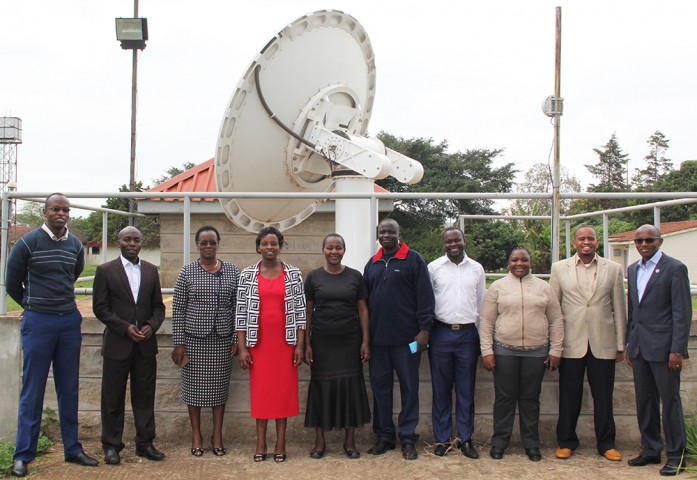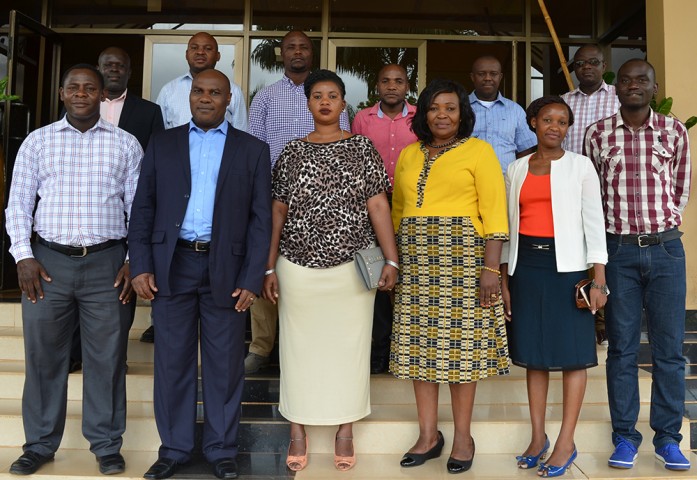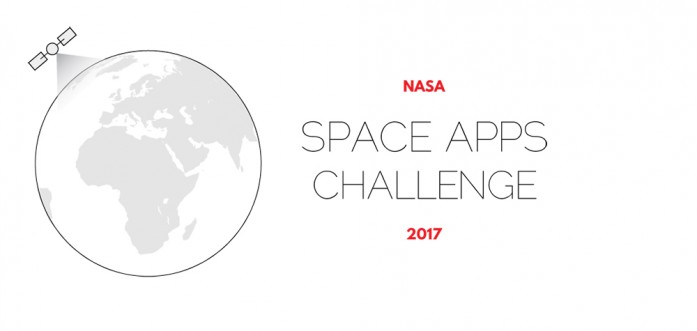
SERVIR E&SA has introduced an activity dubbed “RCMRD Space Challenge” targeting primary and secondary schools to enlighten and equip the children in Kenya on some of the causes and drivers of climate change as way of giving back to society. The RCMRD Space Challenge will leverage on a partnership between RCMRD and the Global Learning and Observations to Benefit the Environment (GLOBE) program, an initiative which provides students with an opportunity to participate in data collection and learn basic scientific processes. Read more here

RCMRD/SERVIR-E&SA staff recently conducted capacity assessment for six institutions in Tanzania working with the Water Resources Integration Development Initiative (WARIDI) project. The main objective of the assessment was to establish current capacity of institutions to integrate Earth Observation information and geospatial
.jpg)
The United States House Sub-committee on Africa, Global Health and Human Rights and International Organizations Staff Director Mr. Gregory Simpkins visited RCMRD on April 11th, 2017. He was accompanied by Ms. Lesley Warner a Professional Staff Member from the US House of Representatives, Committee on Foreign Affairs (Democratic Office). Upon his arrival at RCMRD,
Mr. Simpkins’ delegation was taken on a familiarization tour of RCMRD, which is an inter-governmental organization, with a membership of 20 Contracting Member States in the Eastern and Southern Africa Regions.
Mr. Simpkins tour objectives to the East Africa Region were to familiarize himself on: i) Counter Violence Extremism, ii) Democratic Governance updates of Kenya’s election process and iii) Regional Climate Change. His visit to RCMRD was organized in collaboration with USAID and selected partners working on regional climate change and resilience issues within the region. RCMRD was requested to host the event by USAID as a result of being the SERVIR Regional Hub for Eastern and Southern Africa.
Mr. Simpkins’ visit accorded him an opportunity to learn more about USAID’s resilience work through the regional institutions (RCMRD/SERVIR E&SA, ICPAC, PREPARED and FEWS Net). Further, highlights on existing collaborations, coordination and partnerships between regional organizations and how their work relates to US investments in the region were made. Such investments contribute to US National Foreign Policy priorities and complement resilience building efforts in the region.
RCMRD through the SERVIR E&SA project and her partners made a joint presentation that stressed that the East Africa region’s economies were highly dependent on natural resources, and thus vulnerable to climate variability and change. The partners supported by USAID stressed the importance of rising temperatures and changing rainfall patterns, resulting in increased frequency and intensity of extreme weather events such as droughts and flooding that threaten the sustainability of the region’s development. The partners highlighted scientific data which provides evidence of climate change as a threat to food security.
Mr. Simpkins commended the institutions for the work they were doing in partnership to support the region’s efforts to build resilience to climate change. He further stressed that there was need to continue improving the science policy interfaces to support timely and informed decision making by policy makers. He was curious to understand the existing networks and how they facilitated translation of research findings to policy interventions that solve the challenges faced by the citizenry. Dr. Artan commented that as a result of the existing networks between regional and national organizations, the current drought event was managed/mitigated in a more cohesive approach. The regional forecast was issued on time and accurately analyzed. Governments such as Kenya and Ethiopia responded by allocating funds to support the drought event, however due to the extent and severity of the drought the resilience measures still need further support. He further noted that several lessons have been learnt which will support further resilience building efforts in the region. Projects such as PREPARED and SERVIR were supporting design and generation of decision support tools and products to enhance regional and national efforts in adaptation and resilience building.
In attendance during this visit was the Deputy Mission Director for USAID Kenya and East Africa (USAID-KEA), Dr. Candace Buzzard; the Deputy Director for East Africa & Operations, Environment Office, Mr. Brad Arsenault; the Regional Climate Change Specialist-USAID-KEA, Ms. Chihenyo Kangara; the Director of RCMRD’s Technical Services Directorate, Prof. John B.K. Kiema; the Project Manager for SERVIR E&SA, Dr. Robinson Mugo; the Chief of Party for the PREPARED Project, Dr. Scott McCormick; the Director for IGAD Climate Prediction & Applications Centre (ICPAC), Dr. Artan Guleid; and the Resident Scientist from the Famine Early Warning Systems Network (FEWS Net), Mr. Gideon Galu. Other RCMRD implementating partners included the Kenya Forest Service represented by Ms. Serah Kahuri; the Kenya Red Cross Society represented by Head of the WASH program Mr. Ayaz Manji and the National Drought Management Authority represented by Mr. Nelson Mutanda. Also present were RCMRD/SERVIR E&SA staff.

For 48-72 hours across the world, problem solvers join the NASA’s International Space Apps Challenge, one of the largest hackathons in the universe. Empowered by open data, NASA collaborates to solve perplexing challenges in new and unexpected ways from designing an interactive space glove to natural language processing to clean water mapping.